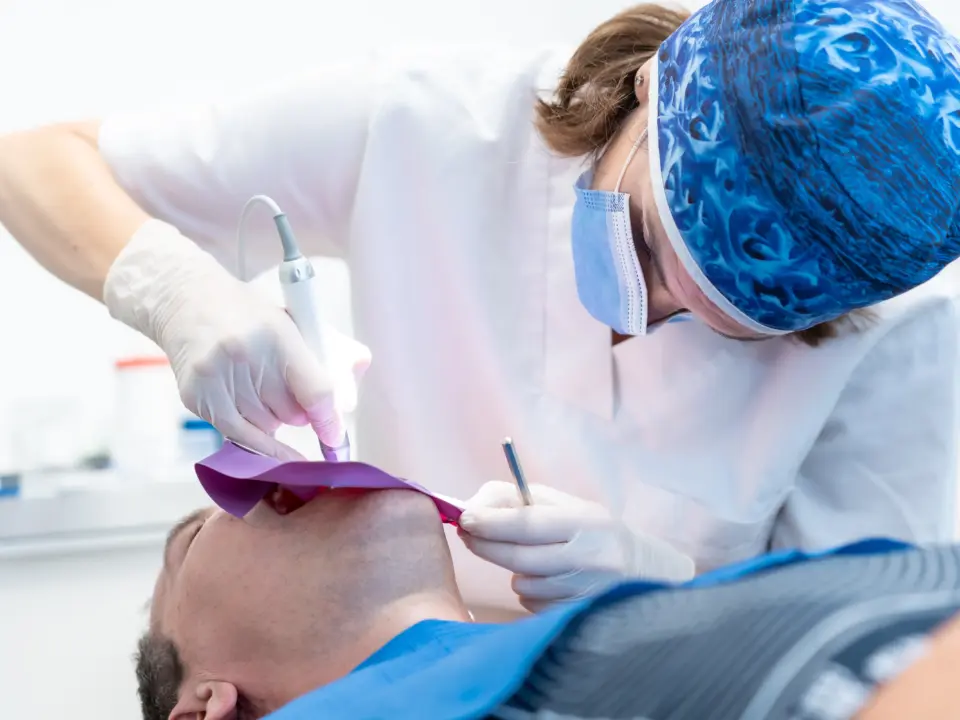
What Are Dental Implants
December 5, 2022
How To Manage Dental Anxiety
February 6, 2023Wisdom teeth removal is a standard, simple procedure. Wisdom teeth are usually the final teeth an adult individual, development occurs during the late teenage years or early adulthood. There are multiple factors to determine if wisdom teeth should be extracted. One of the main reasons for removal is the frequent pain that they cause.
The procedure for removal is quick and does not require a lengthy recovery period. In most cases, patients recover within two to five days. There are many questions surrounding wisdom teeth removal; discussed below are the following topics:
- Complications caused by wisdom teeth
- Possible complications with the procedure
- Recovery after the procedure
Complications Caused By Wisdom Teeth
In younger individuals, wisdom teeth removal can be easier to perform compared to a later age. The bone is more flexible and elastic, decreasing bone fracture risk. Removing wisdom teeth at a younger age also reduces the risk of getting nerve damage.
Wisdom teeth can lead to painful discomfort once they erupt. When the teeth arise from the jaw at a bad angle, they can press against other teeth. The only solution to relieve the pain is to undergo a removal procedure.
If the mouth is too small, the wisdom teeth will not have enough room to grow correctly, which can cause crowding in the mouth, leading to pain or discomfort. Some patients have poor oral hygiene; it is advised to remove the wisdom teeth when they are not healthy for the mouth.
Some patients experience partial eruption when the wisdom teeth do not fully grow out of the jaw. Infections can develop behind the second molar; infections can lead to gum disease, and removal of the wisdom teeth can provide relief in this case.

Possible Complications With The Procedure
The risks associated with tooth extractions are infrequent. When it comes to wisdom teeth removal, the patient can develop a dry socket. This can occur when part of the jaw bone is exposed, and the blot clot in the extraction site is lost.
Another possible risk is infection; dangerous microorganisms can infect post-surgical wounds. This bacteria can be trapped in food and reach the open wound in the mouth. These infections can easily be treated with antibiotics. Damaged structures are another risk; there is a possibility that the bone, soft tissue, or nerves near the site of the procedure become damaged. However, these risks are less common for younger adults.
Recovery After The Procedure
The first 24 hours after the procedure:
- Avoid drinking through a straw or rinsing your mouth vigorously
- Do not use mouthwash containing alcohol or drink alcohol
- Use a soft manual toothbrush near the extraction site and avoid brushing teeth directly next to the extraction site
Patients may experience pain, swelling, or bleeding in the mouth. Opening the mouth fully can be difficult after the surgery. It can take up to six weeks for the extraction site to heal completely; most patients can resume normal activities the next day. It is important to avoid strenuous activity for a week following the procedure to avoid breaking off the blood clot.
Medications such as Tylenol (acetaminophen) and Advil (ibuprofen) are generally effective for pain. Putting a bag of ice or a cold washcloth on the face can also reduce pain and swelling.
Recommended food and drinks will be given to the patient after the procedure. The soft tissues will likely be sensitive for a few weeks after; liquid-based foods are recommended until the patient feels they can start adding in solids.
Wisdom teeth removal is very common, and experiencing complications is very rare. Following the post-procedure instructions given by the dentist will result in a successful recovery. Maintaining good oral hygiene will prevent infections or gum disease. Knox Mountain Dentistry offers wisdom tooth removal services; visit our website to learn more.



